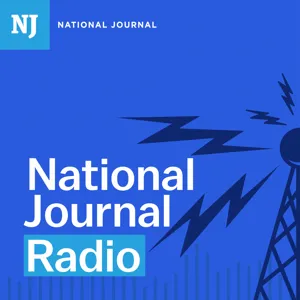Podcast Summary
Listening to NPR listeners: NPR listeners offer unique insights and perspectives, adding depth to original stories and sparking interesting conversations.
Key takeaway from this episode of The Indicator is the creativity and insight of NPR listeners. During this show, the hosts read and responded to listener emails, sharing new perspectives on topics covered in previous episodes. One listener discussed the unintended consequences of Airbnb bans, another proposed a solution for mortgage lock-in problems, and yet another suggested a way to keep CEOs humble. These insights not only added depth to the original stories but also sparked interesting conversations. Additionally, the episode featured sponsor messages from Enbridge, Fundrise, Slack, and Babson College. Enbridge shared their investment in renewables and lower carbon solutions, Fundrise highlighted their real estate expansion plans, Slack promoted their productivity platform, and Babson College encouraged entrepreneurial leadership. Overall, this episode showcased the value of listening to diverse perspectives and the power of collaboration between listeners and broadcasters.
NYC Airbnb regulations may limit safe access for vulnerable groups: NYC Airbnb regulations, while helping long-term renters, could limit safe access to short-term rentals for vulnerable groups, including women, people of color, and the transgender community.
New York City's Airbnb rental regulations, which ban short-term rentals of entire apartments unless the owner is present, may help ease pressure on rents for long-term renters, but it could also have unintended consequences. Keith Rose, the director for LGBTQ initiatives at the Metropolitan Saint Louis Equal Housing and Opportunity Council, pointed out that this regulation might limit safe access to short-term rentals for people who feel uncomfortable cohabiting with strangers, particularly those who have experienced sexual assault or discrimination. This includes women traveling alone, people of color, and the transgender community. These individuals might prefer the anonymity of an unoccupied space when they arrive. While full Airbnb rentals offer advantages like having the entire space to oneself, the regulation's unintended consequence could limit access to safe and convenient short-term housing options for certain individuals.
Denmark's mortgage system allows homeowners to buy back their mortgage bond when selling a house, reducing impact of rising interest rates: Denmark's mortgage system empowers homeowners to sell houses without being negatively affected by high interest rates by allowing them to buy back their mortgage bond instead of paying off the full amount based on market value.
Denmark's mortgage system offers homeowners the flexibility to buy back their portion of the mortgage bond when they want to move and sell their house, making it less affected by rising interest rates. This system allows homeowners to avoid paying off the full mortgage amount based on its current value in the financial markets, rather than the house value or the amount they've already paid off. This smart system provides homeowners with the ability to move without being negatively impacted by high interest rates and gives them the freedom to make housing transitions as needed. It's a unique solution to the problem of being locked into a low interest rate mortgage during an era of rising rates.
Addressing potential misuses of government subsidies: Proposed solution includes barring subsidized companies from lobbying against taxes or handouts and implementing a laugh machine for self-proclaimed self-made successes.
Key takeaway from the discussion on industrial policy is that while there are valid arguments against and for government subsidies for businesses, Mel Medeiros proposes an interesting solution to potential misuse of these subsidies. If implemented, companies receiving subsidies would be barred from lobbying against business taxes or handouts, and their leadership would also be subject to the same rule. Furthermore, a laugh machine would be triggered every time the company or leadership boasted about their self-made success. This idea, though debatable in terms of constitutionality, sparked an amusing conversation about the type of laughter such a situation would elicit. Overall, the conversation highlighted the importance of addressing potential misuses of government subsidies and engaging in thoughtful discussions on industrial policy.
Discussion about a company's growth without government help compared to a haunted house: Encouragement to share thoughts on policy ideas, Alice's valuable suggestions acknowledged, sponsor message included
During a discussion about various business scenarios, a comment was made about a company that had grown without government help, drawing a comparison to a haunted house. While the favorite scenario wasn't explicitly stated, it was suggested that it was the second one. A policy idea was introduced, but its implementation was uncertain. A joke was shared, and while it elicited a mild chuckle, the group agreed that Alice had valuable suggestions. They encouraged listeners to share their thoughts by sending letters to the editor. The episode was produced by Julia Ritchie, engineered by Sina Lofredo, fact-checked by Sarah Juarez, and edited by Kate Concannon. A sponsor message from NPR's partner, Mint Mobile, was included, offering unlimited wireless plans for $15 a month with a 3-month commitment.






